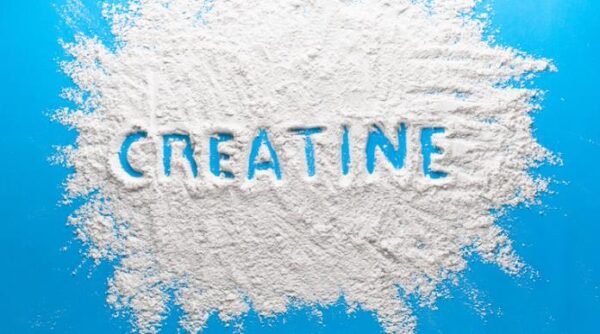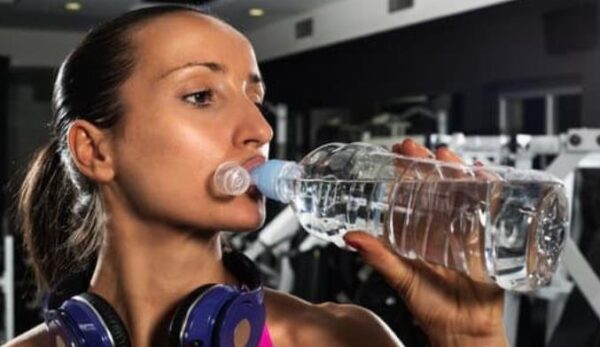Are you looking to level up your workout game with creatine but unsure about how much water you should be drinking? Hydration is key when it comes to maximizing the benefits of creatine, and we’ve got all the insights you need to stay on top of your hydration game. In this blog post, we’ll dive into the importance of water intake for creatine users, discuss recommended guidelines, share tips for staying hydrated, and help you strike the perfect balance between water consumption and your creatine regimen. Let’s quench our thirst for knowledge together!
What is Creatine and its Benefits?
Creatine is a naturally occurring compound found in our muscles, primarily stored in the form of phosphocreatine. When you supplement with creatine, it can enhance your body’s ability to produce energy during intense workouts by replenishing ATP stores.
One of the key benefits of creatine is its role in increasing muscle strength and power output, which can lead to improved performance in activities like weightlifting and sprinting. Additionally, creatine has been shown to support muscle growth by promoting protein synthesis and cell volumization.

Beyond its physical performance benefits, creatine may also have cognitive effects, potentially enhancing brain function and memory. Many athletes and fitness enthusiasts turn to creatine as a safe and effective way to boost their exercise performance and achieve their fitness goals.
The Importance of Hydration for Creatine Users
Creatine is a popular supplement among athletes and fitness enthusiasts due to its ability to enhance performance and muscle growth. However, many people overlook the importance of staying properly hydrated when using creatine. Hydration plays a crucial role in maximizing the benefits of creatine and preventing potential side effects.
When you take creatine, your muscles absorb more water, which can lead to dehydration if you’re not drinking enough fluids throughout the day. Dehydration can hinder your workout performance and overall health. To ensure that creatine works effectively in your body, it’s essential to maintain adequate hydration levels.
Drinking an ample amount of water not only helps with creatine absorption but also supports various bodily functions like nutrient transport, temperature regulation, and joint lubrication. Proper hydration is key for maintaining energy levels during intense workouts and promoting recovery post-exercise.
Whether you’re loading up on creatine or following a maintenance dose, remember to prioritize hydration by sipping water consistently throughout the day. Your body will thank you for keeping those fluid levels in check while reaping the benefits of your creatine supplementation routine!
Factors Influencing Water Intake with Creatine
When it comes to factors influencing water intake with creatine, several key elements play a role in determining how much hydration is needed. One crucial factor is the dosage of creatine being consumed – higher doses may require increased water intake to support its effects on the body.

Additionally, individual body weight and composition can impact the amount of water needed when using creatine. Those with higher body weights or more muscle mass may need to drink more water to stay properly hydrated while supplementing with creatine.
Physical activity levels also play a significant role in determining water needs for creatine users. Increased exercise intensity and duration can lead to greater fluid loss through sweat, necessitating higher water consumption to maintain adequate hydration levels.
Moreover, environmental factors such as temperature and humidity can influence how much water should be consumed alongside creatine supplementation. Hotter climates or indoor environments without proper ventilation may increase the risk of dehydration, emphasizing the importance of staying hydrated while using creatine.
How Much Water Should I Drink with Creatine?
Determining the exact amount of water to drink with creatine can vary based on individual factors such as body size, activity level, and climate. However, a general recommendation is to aim for increased hydration when using creatine.
As a starting point, consider adding an extra 8-16 ounces (about 240-480 milliliters) of water per 5 grams of creatine consumed. This helps ensure adequate hydration and supports the body’s ability to utilize creatine effectively.
Additionally, listen to your body’s thirst signals and drink water throughout the day to maintain proper hydration levels. Pay attention to factors like sweat loss during exercise, environmental conditions, and urine color as indicators of hydration status.
Ultimately, the key is to prioritize hydration by drinking water regularly, especially when supplementing with creatine, to optimize its benefits and minimize potential side effects. Adjust your water intake based on individual needs and consult with a healthcare professional or registered dietitian for personalized guidance.
Tips for Staying Hydrated While Using Creatine
To ensure optimal hydration while using creatine, it’s essential to make drinking water a priority throughout the day. Carry a reusable water bottle with you and sip on it regularly to stay hydrated. Adding flavoring like lemon or cucumber can make it more enjoyable.
Monitor your urine color – pale yellow indicates proper hydration, while dark yellow may suggest dehydration. Aim for clear or light-colored urine as a sign of adequate fluid intake. Set reminders on your phone or use apps to prompt yourself to drink water at regular intervals.

Incorporate hydrating foods into your diet such as fruits and vegetables that have high water content like watermelon, cucumber, and oranges. Avoid excessive caffeine and alcohol consumption, as they can contribute to dehydration.
Listen to your body – thirst is a signal that you need more fluids, so don’t ignore it. If you’re feeling thirsty, grab that water bottle and take a few sips immediately. Stay proactive about staying hydrated for the best results when using creatine!
Signs of Dehydration and How to Prevent It
Dehydration can sneak up on you, causing a range of unpleasant symptoms. Feeling thirsty is an obvious sign, but other indicators include dark urine, dry mouth, fatigue, and headaches. If you notice these signs while taking creatine, it’s crucial to up your water intake immediately.
Preventing dehydration is key to maximizing the benefits of creatine supplementation. To stay hydrated, aim to drink at least 8–10 cups of water per day. Carry a reusable water bottle with you wherever you go as a reminder to keep sipping throughout the day.
During exercise or hot weather, when you’re more likely to sweat profusely, increase your water intake even further. Electrolyte-enhanced drinks can also help replenish lost minerals and fluids during intense workouts.
Listen to your body – if you start feeling thirsty or experiencing any signs of dehydration mentioned earlier, don’t ignore them. Regularly monitoring your hydration levels will ensure that you’re supporting your body’s needs while using creatine effectively.
Balancing Water Consumption with Creatine Loading and Maintenance Phases
When incorporating creatine into your fitness routine, it’s crucial to balance water intake throughout both the loading and maintenance phases. During the loading phase, where you’re taking higher doses of creatine to saturate your muscles, hydration becomes even more important. Adequate water consumption helps support the process of creatine absorption and utilization in your body.

As you transition into the maintenance phase with lower daily creatine doses, maintaining proper hydration levels remains key. Consistent water intake ensures that creatine continues to be effective in enhancing performance and muscle recovery. Remember to listen to your body’s signals for thirst and adjust your water intake accordingly during this phase.
Finding a balance between sufficient water consumption and creatine usage is essential for maximizing its benefits while preventing dehydration. Be mindful of increasing your fluid intake when using creatine supplements and aim to drink at least 8-10 glasses of water per day for optimal results.
FAQs
Is water retention a result of creatine use?
Yes, water retention is a common side effect of creatine supplementation. Creatine draws water into the muscles, which can lead to increased water retention. This is often perceived as muscle fullness or “pump.”
Does using creatine make cramping in the muscles more likely?
No, there isn’t substantial evidence to suggest that creatine supplementation directly causes muscle cramping. In fact, creatine may even have protective effects against muscle cramps by improving hydration status and muscle function.
For every 5g of creatine, how much water do I need?
For every 5 grams of creatine, aim to drink an extra 8 to 16 ounces (about 240 to 480 milliliters) of water. This helps support hydration and maximize creatine absorption. Adjust based on individual needs and consult a professional for personalized advice.
Does using creatine need you to drink a lot of water?
While it’s important to maintain adequate hydration when using creatine, it’s not necessarily about drinking a large volume of water. Instead, focus on staying hydrated throughout the day by drinking water regularly and listening to your body’s thirst cues.
What occurs if I take creatine and do not drink enough water?
Insufficient water intake while using creatine can increase the risk of dehydration and potentially lead to side effects such as muscle cramps, gastrointestinal discomfort, or impaired performance. It’s essential to prioritize hydration to maximize the benefits of creatine supplementation and minimize potential risks.
Related Articles:
